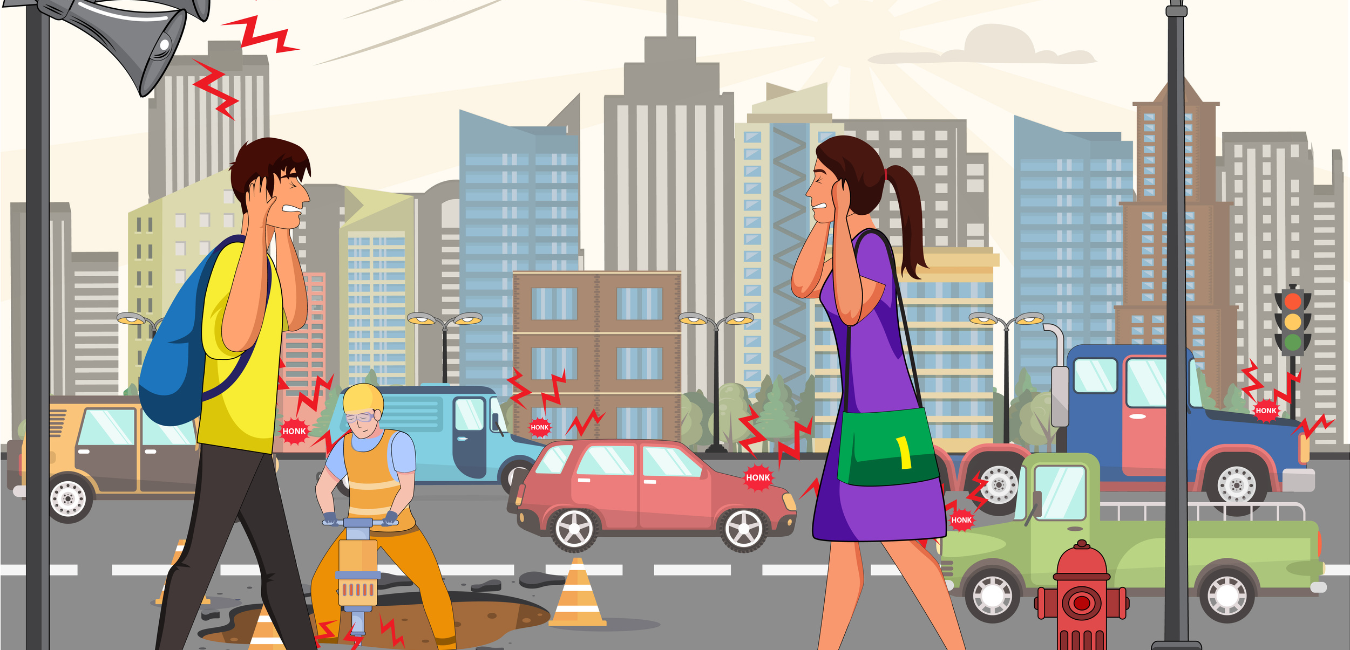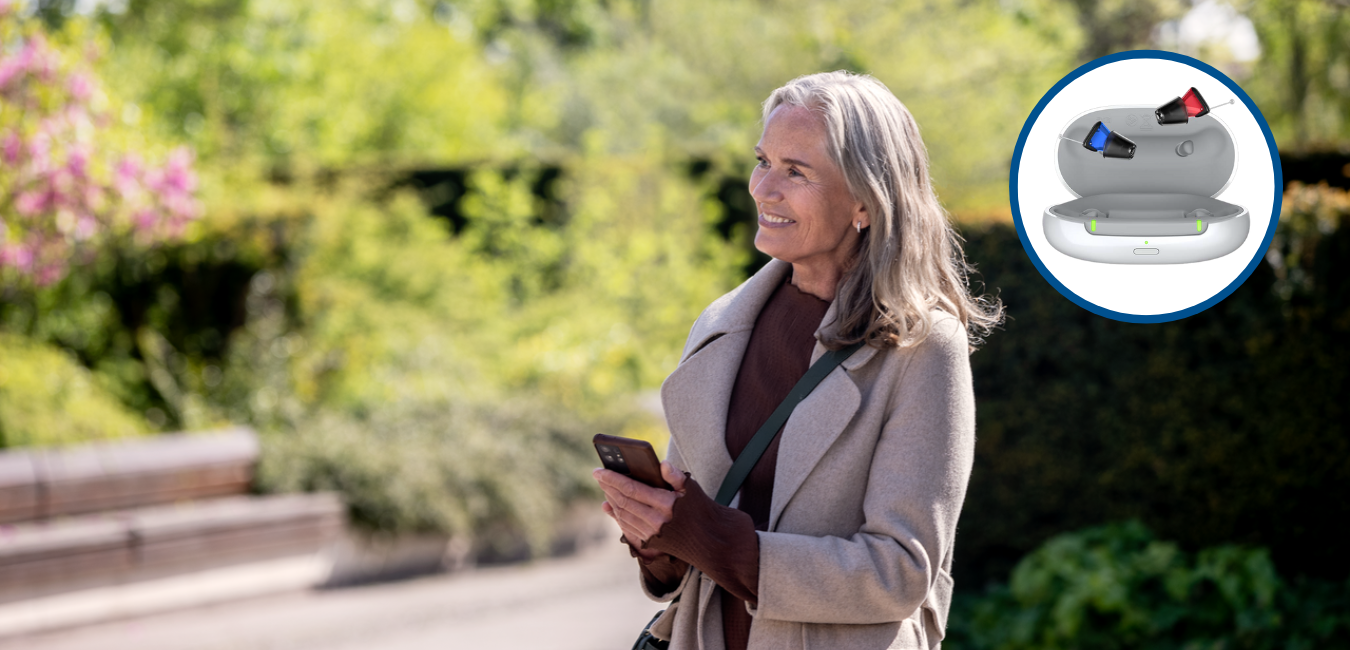Awareness of Diabetes and Hearing Loss Go Hand-in-Hand
When we think of diabetes, we think of high blood sugar, insulin, the need to maintain a proper diet, and, perhaps, how tasty that terrible chocolate cake at the grocery store looks. But, when we think of diabetes, we don’t usually think of hearing loss. Diabetes brings with it so many other health concerns that not hearing a word here or there might seem insignificant.

Yet folks who suffer from diabetes are twice as likely to suffer from hearing loss as those who don’t. Even those who are at risk of developing diabetes are 30% more likely to have hearing loss. The reason for this is because elevated blood sugar levels may damage the blood vessels in the inner ear, which reduces blood flow to the nerves and hair cells that process sound. Yet doctors who treat diabetic patients don’t often recommend a hearing test for their patients. (2) They, like their patients, are most likely focused on getting that diabetes under control. And, considering how serious disease diabetes can be, this is understandable.
At the same time, we are social creatures. No one exists in a vacuum. The ability to socialize, to connect with the world, is vital. This not only links us to friends and family, for fun and pleasure, but it also helps us define who we are, as individuals, and it enables us to earn a living, whether we work in a retail store, a factory, an office, or even if we freelance from home. (3) In short, being able to hear what people say is just as important as keeping an eye on our heart rate, our blood pressure, and our blood sugar. Furthermore, if there is diabetes-related damage to our hearing system, this is likely indicated a larger health issue and so it can be a call to action for controlling diabetes as well.
Potential for Dementia
While doctors are mostly focused on their patients’ diabetes and any related medical issues, a person’s degree of untreated hearing loss can act as a psychological vital sign, akin to the physical vital signs of heart rate or blood pressure. Like with diabetes or any other chronic illness, most hearing loss advances slowly (4), unless it was induced by a single, catastrophic event or existed at birth. The ability to hear usually dwindles a little bit at a time, from one day to the next, due to age or environmental factors.
Most people don’t notice it until a few years go by, and social interactions become more difficult. During that time, they may become withdrawn and avoid social situations. (5) This creates the beginnings of an unfortunate feedback loop. The ability to hear is integral to our social lives. We need it in order to watch TV shows or go see a movie unless we go through the process of setting up captions on the TV or ask for a closed caption device at the cinema. And we need it in order to enjoy that family gathering, where everyone talks and laughs, all at the same time.
When someone feels that ability to hear slipping away, his entire world changes. What was natural for so many years — such as watching TV, going to the movies, and enjoying that insane family gathering — becomes more difficult. But, what’s worse, his connection to his friends and family becomes strained. He may withdraw from people out of embarrassment, or he may withdraw because asking people to repeat themselves time and again, during every conversation, is a lot of work, and hearing everyone’s repeated words, time after time, it may become annoying or frustrating. (3, 5)
This diminishes his desire to communicate. As result, they may seek out fewer social situations, spends less and less time engaged with his friends and family, and generally withdraw by degrees. With less social engagement, his brain, itself, is less stimulated. It is no longer firing on as many neurons as it used to. Our brains are much more complex than our muscles, but our use of it applies in the same fashion: If we don’t use it if we don’t exercise it, it weakens. This is how uncorrected hearing loss may pave the way for dementia. (6)
Risk of Falling
Diabetes, itself, increases the likelihood that someone may fall. One reason for this is the nerve damage that may occur in a diabetic patient’s legs and feet. Impaired vision, caused by the lack of blood flow to the retina may also contribute. Similarly, the lack of blood flow to the inner ear can impact our spatial awareness as well as our organs of balance.
On top of that, though, hearing loss may add to that risk. Even mild hearing loss raises the risk of falling by a factor of three. (8) The more severe the hearing loss, the greater the risk of falling. When the brain has to focus more on concentrating on sounds and speech, it has fewer resources with which to focus on walking and balance. (9) And the increased risk of falling adds to the lack of confidence someone may feel from hearing loss, which can lead to more social isolation. (10)
On the Brighter Side
But the good news is that a solution as simple as wearing hearing aids can easily remove the potential for social isolation and the risk of cognitive decline. And even though diabetes itself can impair balance (7), hearing aids may also help with that, since the brain no longer has to focus so hard on processing and interpreting sounds and speech. Since diabetes can cause hearing loss, hearing loss can also be a sign of diabetes, especially if you feel some of the other risk factors, such as always being thirsty or hungry, blurred vision, or sores that are slow to heal, among others. (11)
Hearing Solutions has been serving Ontario for over 20 years, and we are proud to help people enjoy the world of sound and life. We offer a free hearing assessment in a warm and friendly environment. We understand the trials and tribulations involved with hearing loss, and we will help you choose the best options, for your unique situation. We offer sound advice you can trust.
So, scheduling a regular, risk-free hearing test, just as you would schedule a regular doctor’s appointment, makes all the sense in the world. Hearing aids can make life more healthy, more enjoyable, more inclusive, and even less risky.
To book your free hearing test appointment, click here.
Sources/Citations:
1. Besser et al (2018); NIH (2004)
2. Better Hearing Institute: www.betterhearing.org/news/smart-diabetes-management-includes-routine-hearing-tests
3. Dalton et al., 2003 Besser et al (2018); NIH (2004)
4. Trychin, 1993
5. Granick, Kleban, & Weiss, 1976; Gussekloo, de Craen, Oduber, van Boxtel, & Westendorp, 2005; Lin et al., 2011a; Lin et al., 2011b; McCoy et al., 2005; Valentijn et al., 2005
6. Why Diabetes Raises Your Risk of Falling: https://www.healthandwellnessalerts.berkeley.edu/topics/diabetes/why-diabetes-raises-your-risk-of-falling/
7. US Centers for Disease Control &Prevention, Lin & Ferrucci (2012), NIH (2004)
8. WHO (2007); Abrams (2015)
9. National Council on Aging
10. Could You Have Undiagnosed Diabetes? https://www.pinnaclecare.com/highlights/blog/undiagnosed-diabetes/
11. Canadian Institute for Health Information: International Comparisons: A Focus on Diabetes
12. Statistics Canada
13. American Diabetes Association
14. National Institutes of Health







